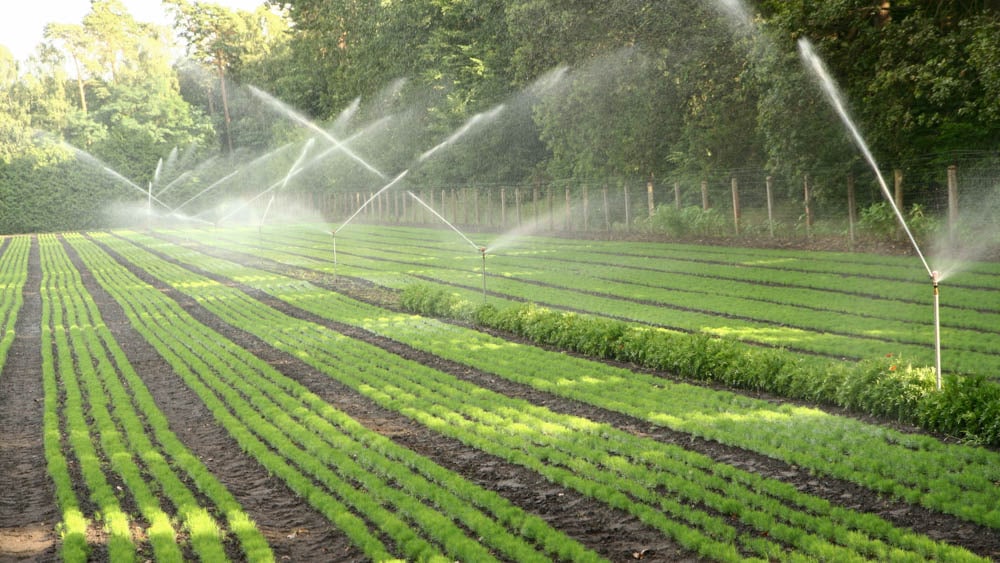Irrigation 101: From Basics to Advanced Watering Strategies
Maintaining a healthy garden or landscape requires consistent watering to ensure that your plants thrive. Irrigation is an essential aspect of gardening, and it involves the application of water to plants through different methods.
The goal of this blog post is to help you understand the basics of irrigation Blenheim, choose the right irrigation system for your garden, and explore advanced watering strategies that can help you optimize your irrigation system.
Understanding Irrigation Basics
Irrigation is the artificial application of water to plants to support their growth. It is essential because it helps to supplement natural rainfall, especially in dry areas where water is scarce.
Check out - Irrigation Blenheim

There are different types of irrigation systems, including drip irrigation, sprinkler irrigation, flood irrigation, and sub-surface irrigation. Each system has its benefits, and it's important to understand which system will work best for your garden.
Drip irrigation, for example, involves applying water directly to the plant roots through a tubing system that delivers water at a slow and steady rate. This system is highly efficient because it reduces water loss due to evaporation and runoff.
Sprinkler irrigation, on the other hand, involves spraying water over the garden or landscape in a circular pattern. This system is ideal for watering large areas and can be adjusted to deliver water at different rates.
Before choosing an irrigation system, it's important to determine the amount of water your plants need. Factors such as plant type, soil type, and weather conditions can affect how much water your plants require. You can use a soil moisture meter to help you determine the moisture level in your soil and adjust your irrigation system accordingly.
Choosing the Right Irrigation System for Your Garden
Choosing the right irrigation Blenheim system for your garden can be a daunting task, but it's important to consider factors such as the climate, soil type, and plant type. For example, if you live in a hot and dry climate, a drip irrigation system may be more efficient because it delivers water directly to the plant roots, reducing water loss due to evaporation. If you have a large garden or landscape, a sprinkler irrigation system may be more appropriate because it can cover a larger area.
It's also important to consider the pros and cons of each irrigation system. For example, while drip irrigation is highly efficient, it may not be suitable for plants that require more water. Sprinkler irrigation, on the other hand, may lead to water loss due to evaporation and runoff.
When choosing an irrigation system, it's essential to choose one that is easy to install and maintain. You can consult an expert to help you choose the right irrigation system for your garden.
Advanced Watering Strategies
Advanced watering strategies can help you optimize your irrigation system and reduce water waste. One such strategy is the use of soil moisture sensors, which measure the amount of moisture in your soil and adjust your irrigation system accordingly. This ensures that your plants receive the right amount of water, reducing water waste.
Rainwater harvesting is another advanced watering strategy that involves collecting rainwater and storing it for future use. This is an excellent way to conserve water and reduce your water bill. You can use a rain barrel to collect rainwater from your roof and use it to water your plants.
Smart controllers are another advanced watering strategy that uses technology to optimize your irrigation system. These controllers use sensors to measure moisture levels, rainfall, and temperature, and adjust your irrigation system accordingly. This ensures that your plants receive the right amount of water, reducing water waste.
Maintenance Tips for Your Irrigation System
Regular maintenance is essential to ensure that your irrigation Marlborough system functions optimally. You should check your irrigation system regularly for leaks, clogs, and other issues that may affect its performance. It's also important to clean your irrigation system regularly to prevent clogs and buildup.
Common issues with irrigation systems include leaks, broken sprinkler heads, and clogged filters. If you notice any of these issues, it's important to address them immediately to prevent further damage to your system.
Conclusion
Irrigation is an essential aspect of gardening that can help you maintain a healthy and thriving garden. Understanding the basics of irrigation Blenheim, choosing the right irrigation system for your garden, and exploring advanced watering strategies can help you optimize your irrigation system and reduce water waste.
With regular maintenance, you can ensure that your irrigation system functions optimally and your plants thrive.
Comments
Post a Comment